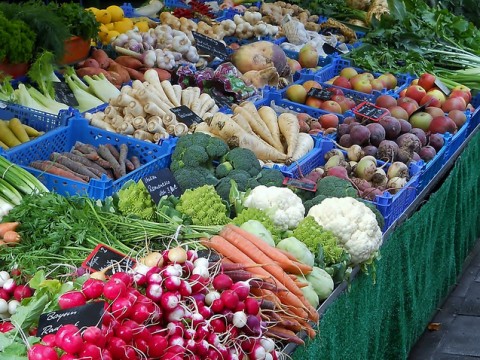New Breastfeeding Moms Wonder About Diet
Many new breastfeeding moms often wonder if their diet affects their milk supply. When a mother breastfeeds, her body will use the nutrients and energy stored in her body to make milk. So, a poor diet usually poses more of a health risk to a mother than her baby. However, a diet very low in calories can result in a low milk supply, and there are some things she should consume to stay as healthy as possible. Read on for a few breastfeeding diet tips for the foods nursing moms should and should not eat.

What foods should a breastfeeding mother eat?
The best breastfeeding diet tips are for a mother to eat a healthy and well-balanced diet that includes foods from all of the food groups. Mothers should look for whole, natural foods that are free from additives, preservatives and pesticides. In most cases, a mother’s body will continue to produce nutrient-rich milk even if her diet is unhealthy; however, some physicians suggest that what a woman eats does have an effect on the composition of her breast milk. Follow these breastfeeding diet tips for maintaining a healthy diet while breastfeeding.
- Eat plenty of vegetables and fruits, both cooked and raw.
- Eat whole grains, such as whole-wheat bread, rice and pasta.
- Consume one ounce of fat per day. Fat can come from uncooked vegetables oils or butter.
- Protein should be included in the daily diet. Protein can come from meat, fish, eggs, lentils or soybeans.
- Calcium is necessary in the daily diet, and it can come from milk, cheese, salmon, broccoli or yogurt.
- Drink plenty of fluids (six to nine servings per day) such as water, juice, tea and milk.
Does a breastfeeding mother need extra calories?
Women need about 300 to 500 extra calories per day to make milk for their babies. The types of foods the woman eats are usually more important than the amount of calories she is consuming. If a woman includes healthy, natural foods into her daily diet she will have enough energy to produce milk for her baby.
What foods should a breastfeeding mother avoid?
There is no set rule for the foods a breastfeeding mother should avoid. Although, she should avoid a high intake of sugary snacks or highly processed foods, as these have little to no nutritional value. If there is a family history of certain allergies, the woman may want to eliminate cow’s milk or peanuts from her diet. Alcohol should be avoided; however, the mother can have one or two alcoholic drinks per week. Her baby should not nurse for two hours after she drinks alcohol. Some babies, especially those under six months of age, are highly sensitive to caffeine. The mother should watch for signs of restlessness, inability to sleep, being to alert or jittery, and unusual fussiness. Caffeine is OK in moderation; however, less than five 5-oz cups should be consumed per day.
Final Breastfeeding Diet Tips
If a woman is having trouble adding extra calories into her diet, she can eat healthy snacks. These can include cheese slices, fruit, yogurt, smoothies, whole-grain cereal and multigrain crackers. Moms should ensure that their baby nurses for as long as possible on each breast, this way the baby receives both the watery foremilk and the fatty hindmilk. If a mother eats a well-balanced diet, she is improving her health, which is beneficial to her nursing baby.
Thank-you for reading this post. Please feel free to leave your thoughts in the comment section below.
References:
Bonyata, K. (1998, May 18). How does a mother’s diet afect her milk?. Retrieved from http://www.kellymom.com/nutrition/mom/mom-diet.html